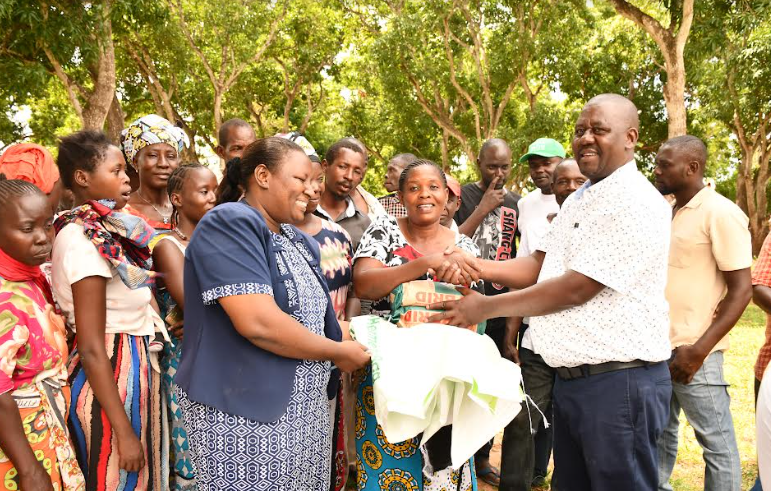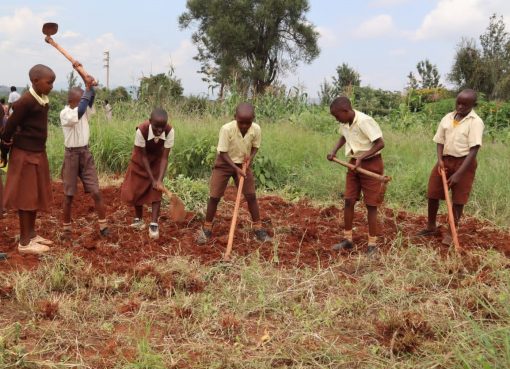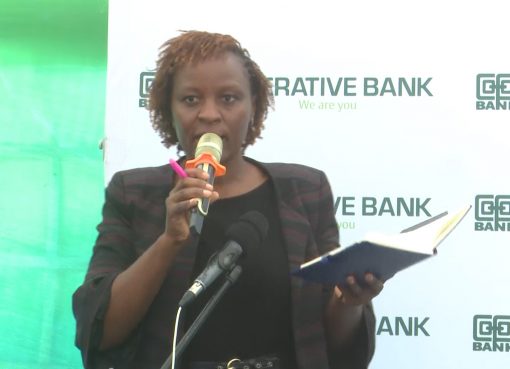Kilifi County, through its Department of Agriculture, is actively encouraging farmers to adopt irrigation instead of relying solely on unpredictable rainfall to boost food production and ensure food security in the region.
The push for irrigation comes on the backdrop of a disappointing harvest from the previous planting season, which was caused by inadequate rainfall despite the county’s extensive distribution of seedlings and fertilisers.
Speaking in Tezo, Kilifi North Sub-County, during the launch of the distribution of hand pumps and dam liners, Chief Officer of the Department of Agriculture and Crops, Teddy Yawa, emphasised the county’s goal to increase food sufficiency by at least 5 percent annually.
“Our aim is to increase food sufficiency in the county by at least 5 per cent every year in this first term of governance, and in the second term from 2027 to 2032 we shall increase it to be at least 10 to 15 per cent every year so that it becomes our legacy,” Yafa disclosed.
The Chief Officer highlighted that the county is committed to improving irrigation infrastructure, including the construction of dams in various areas to facilitate water harvesting during rainy seasons, which can then be used for irrigation during dry periods.
“There’s only one strategy: to stop depending on rainwater. Everywhere farmers are being assisted in constructing dams, digging boreholes, and other irrigation infrastructure so that they can irrigate their crops,” Yawa remarked.
Kilifi County Agricultural Officer Kazungu Ngoa underscored the importance of educating farmers on water harvesting techniques and the benefits of irrigation, given the region’s frequent rainfall shortages.
“We have seen farmers benefit a lot because they are able to cultivate all through the year and are able to adapt to climate change effects,” Ngoa added.
Kibinu Kamau, a local farmer, shared his experience, noting that relying on rainfall alone had led to poor harvests, and in response, he decided to dig a dam on his farm to support irrigation.
Kamau expressed his gratitude to the county government for providing essential irrigation supplies, such as water pumps and dam liners, empowering farmers like him to sustain their crops year-round.
“We cannot rely on rainwater; we plant but get poor yields because of little to no rain. This has pushed us to start digging dams to irrigate our crops. Today I’m grateful to have received a dam liner, and I’m hopeful that when it rains I will be able to harvest a lot of water,” Kamau said.
By Cynthia Maseno





